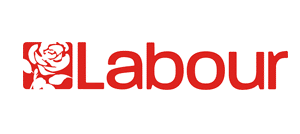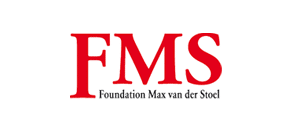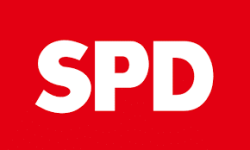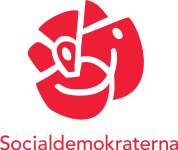Morocco
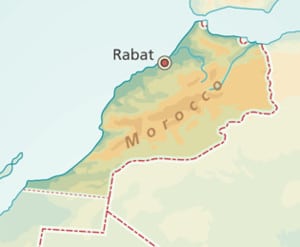
n September 2021 parliamentary elections were held in Morocco. The elections were won by the liberal National Rally of Independents (RNI) party. The party managed to win 102 out of the 395 seats in parliament. The secular and royalist Authenticity and Modernity Party (PAM) became the second largest in parliament with 87 seats. PAM was followed by the conservative Istiqal party with 81 seats. The Socialist Union of Popular Forces (USFP) became the fourth biggest party, winning 34 seats. The USFP remains the largest left-wing party in parliament. After the elections, Morocco’s king picked Aziz Akhannouch from the RNI as prime minister and tasked him with forming a government. A coalition was formed between RNI, PAM and Istiqal. Together they hold a majority of 207 out of 395 seats in parliament.
The win of the RNI showed a big change in the political landscape of Morocco. The elections in 2006 and 2011 had both been won by the Islamist Justice and Development Party (PJD). However during the elections of 2021 the PJD suffered a major loss. The party only managed to win 13 seats in parliament, a large decrease from the 125 seats that the party held after the elections in 2016. The PJD responded to the election outcome by making the accusation of vote-buying by rival parties. The PJD had now moved into parliament as an opposition party.
-
Want to get notified by mail when this country gets updated?
Subscribe to our newsflash below!
Key Info
-
Population: 37,344,787 (World Bank 2021)
-
Governmental Type: Constitutional monarchy
-
Ruling Coalition: RNI, PAM, Istiqlal
-
Last Elections: 2021 (parliamentary elections)
-
Next Elections: 2026 (parliamentary elections)
-
Sister Parties: Socialist Union of Popular Forces (USFP), Unified Socialist Party (PSU)
1 Political Situation
The current King, Mohamed VI, came into power after the death of his father, King Hassan II, in 1999. While King Hassan II was an autocratic ruler, King Mohamed VI appears to have a different vision for Morocco’s future. Under his leadership, there seems to be a tendency towards more democratic and liberal values in Morocco. Mohamed VI has stressed the need for social and economic reform and the need to tackle problems like poverty, illiteracy, and unemployment. However, the space for civil society organisations is shrinking. Freedom House reported that while civil society organsations are active in Morocco, they are subjected to legal harassment travel restrictions, intrusive surveillance and other acts that limit their work. Authorities also routinely deny the registration of non-government organisations that assert the rights of marginalized communities, and organization with links to Islamist Justice and Charity association.
Morocco’s political system is carefully evolving from a strongly centralised monarchy to a parliamentary system. The King retains much of the executive power, but the parliament is democratically elected. However, democratic gestures and programmes do not mean that any real democratisation is taking place. King Mohamed VI has, next to economic and social reforms, also reinforced his own power base by strengthening the army and placing members of his inner circle at important positions in the government. In 2001, a decentralisation process was launched. The local governors, appointed by the King, have achieved more power and that is why this is considered by critics to be a well-groomed way of the King to expand his power.
Another way the King still yields power is his influence over the formation of coalition governments. After the elections in 2021, the King appointed Aziz Akhannouch from the RNI as Prime Minister and gave him the task of forming a government. Akhannouch is one of the richest men in Morocco, with a fortune that is estimated to be around 2 billion dollar. During the election, the RNI represented itself as a champion of social and economic reforms. The party is seen as close to the royal establishment, with Akhannouch declaring that he would implement ‘’his majesty’s vision’’ in a speech after the election results were declared. The RNI was widely perceived as being favored by the monarchy and the authorities during the parliamentary elections in 2021. The RNI has formed a coalition with PAM and Istiqal.
Western Sahara
Western Sahara is a sparsely-populated area of mostly desert situated on the northwest coast of Africa. A former Spanish colony, it was annexed by Morocco in 1975. Since then it has been the subject of a long-running territorial dispute between Morocco and its indigenous Saharawi people, led by the Polisario Front. A 16-year-long insurgency ended with an UN-brokered truce in 1991 and the promise of a referendum on independence which has yet to take place. Since 1991 two-thirds of the territory (including most of the Atlantic coastline – ) has been administered by the Moroccan government, with tacit support from France and the United States, and the remainder by the Saharan Arab Democratic Republic (SADR), backed by Algeria. The Saharan Arab Democratic Republic (SADR), declared by the Polisario Front in 1976, is now recognised by many governments and is a full member of the African Union.
Lately, international opinion seems to be shifting towards the Moroccan stance in the Western Sahara issue. Various European countries, such as Spain and the Netherlands have expressed their solidarity with the Moroccan plan for the region – meaning that the Western Sahara becomes an autonomous region within the Moroccan state. The Polisario and its ally Algeria reacted furious to these latest developments.
Hirak Rif
After the death of a Rif fishmonger in 2016 protests erupted in the Rif region in northern Morocco. Protestors demanded more liberty, security and social benefits in the region. The Rif region is populated by Berber tribes that have a distinctive culture. During the twentieth century, multiple movements have tried to gain more autonomy of even independence for the Rif. Although their language and identity are guaranteed by the Moroccan constitution, they are widely considered to be a marginalized group. Corruption, crime and high unemployment plague the region. Discontent with the central government has therefore been high. The Moroccan government reacted to the protests with a violent crackdown. Security forces have ended protests and arrested even teenagers. The King has blamed his ministers mainly for the current situation in the Rif. According to the Palace, the King is often misinformed over-ambitious projects to resolve the problems. Abroad the protests have found a lot of support. European Moroccans have protested in front of Moroccan embassies. The Rif is currently under the strict control of the security services. A court in Casablanca sentenced Nasser Zefzafi, the leader of a protest movement the Hirak el-Shaabi, or Popular Movement in the Rif has been sentenced to 20 years in prison.
Moroccan protests 2011
The Arab revolution of 2011 also hit Morocco. On 20 February thousands of Moroccans joined nationwide protests in which they were calling for political reforms. They demanded King Mohammed VI to hand over some of his powers to a newly elected government and make the justice system more independent.
Inspired by the pro-democracy protests in the Arab world, a group called the February 20 Movement was formed. It takes its name from the date of its first demonstration and has faced tough resistance from the state security forces. The February 20 Movement is a youth-led network from various ideological backgrounds. Relying mostly on the internet, the group pressed King Mohammed to establish a parliamentary monarchy, enforce accountability, and grant the judiciary full independence.
On 9 March 2011, King Mohammed VI promised ‘comprehensive constitutional reform’ in Morocco and announced the establishment of the committee to work on the constitutional revisions, with proposals to be made to him by June that year. The monarch promised to hand over the power to appoint the prime minister to the parliament, and to provide Morocco’s regions with greater authority, saying it would help consolidate ‘our [Morocco’s] model of democracy and development’.
Despite the King’s guarantees, the demonstrations continued. On 22 May of that year, Moroccan protesters, led by the February 20 movement, took the streets in Rabat, Casablanca, Tangiers and Agadir. In a televised speech on 17 June 2011, King Mohammed VI announced a series of constitutional reforms, to be put to a national referendum on 1 July. However, on 19 June about 10,000 protesters rallied in Casablanca against the proposed changes, which they said did not go far enough. The 20 February Movement also rallied in other Moroccan cities, calling for a truly democratic constitution.
Constitutional referendum of July 2011
A national referendum was held on 1 July 2011. Following its results, constitutional amendments were introduced. The new constitution ensures that the prime minister is selected from the party that received the most votes in the elections, rather than chosen by the king. The prime minister becomes the ‘President of the Government’ and can appoint government officials – an authority previously held by the king. The new prime minister is also able to dissolve the parliament, the role previously accorded only to Mohammed VI. However, the king remains a key power-broker in the security, military and religious fields. The king continues to chair two key councils – the Council of Ministers and the Supreme Security Council – which deals with the security policy. The prime minister can chair these councils, but only using an agenda set by the king.
The voting system was also changed; the number of parliamentary seats decided on a constituency basis was increased from 295 to 305. Additional seats were reserved for the election from national party lists, 60 consisting only of female candidates and 30 for male candidates under the age of 40.
The new reforms were seen as legitimate by the Interior Ministry, according to which 98 percent of those who took part in the referendum on 1 July voted “yes” (turnout was estimated at 73 percent). However, the opposition said the turnout figure looked inflated and alleged irregularities in voting procedures. The result also followed a state media campaign in favour of the “yes” vote that appealed to a widespread sense of loyalty to the King, who is head of the Arab world’s longest-serving dynasty. Furthermore, protesters in Morocco do not think the changes went far enough. On 3 July the February 20 Movement took to the streets, rejecting the amended constitution.
Amendment of the electoral law
In March 2021 a new electoral law was adopted that changed the calculation of the quota for elected officials. Previously, the seats in parliament were determined based on the total number of valid ballots during that election. However, with the new law the electoral quotient will be based on the total number of people who are eligible to vote, meaning people who subscribed to electoral lists, instead of on the number of people who actually vote.
With this new amendment the denominator has become much larger, since the number of registered voters can be substantially larger than the number of valid ballots from people who actually go and vote. As a consequence, parties need to gain a much larger number of votes in order to meet the threshold to gain a seat. In Morocco, members in parliament are elected via electoral constituencies. This means that seats in parliament can be won in specified voting districts. With the new law, it is harder for parties to gain more than one seat per voting district. Small parties, on the contrary, will have more chance of being rewarded with a seat.
How this works can be shown by using an example. Let’s say there is a district where 5 seats can be won. There are 350.000 people who registered to vote, but the amount of people who also actually went out and cast their ballot is 100.000.
In 2016, quotient that had to be met in order to win one seat was based on the amount of people who actually voted.
Quotient of 2016: 100.000 (confirmed votes) / 5 (number of seats to be won) = 20.000.
Thus, under the old system a party needed to gain 20.000 votes to win one seat.
In 2021, the quotient was based on the amount of registered voters.
Quotient of 2021: 350.000 (registered voters) / 5 (number of seats to be won) = 70.000
This shows that parties need to gain more votes in order to win a seat in parliament. This can benefit smaller parties, because it is harder to meet the quotient. The diagrams below shows how this could work in practice.
Results 2016 Results in 2021
| Party | Number of votes | Quotient | Seats |
| A | 60.000 | 20.000 | 3 |
| B | 28.000 | 20.000 | 1 |
| C | 20.000 | 20.000 | 1 |
| D | 1000 | 20.000 | 0 |
| E | 750 | 20.000 | 0 |
| F | 250 | 20.000 | 0 |
| Party | Number of votes | Quotient | seats |
| A | 60.000 | 70.000 | 1 |
| B | 28.000 | 70.000 | 1 |
| C | 20.000 | 70.000 | 1 |
| D | 1000 | 70.000 | 1 |
| E | 750 | 70.000 | 1 |
| F | 250 | 70.000 | 0 |
Because the quotient is higher, parties need to a lot more votes in order to win more than one seat. This can be a disadvantage for larger parties. However, for smaller parties it is an advantage. Since it is harder for all parties to win more than one seat, smaller parties actually have a larger chance of winning at least one seat.
Human rights
Moroccan authorities continue to crack down on freedom of expression in Morocco and Western Sahara by investigating and prosecuting journalists and activists. While the independent press enjoys some freedom when reporting on economic and social policies, the authorities punish critical journalists. Restrictions of the freedom of expression target journalists and activists who are critical of the King, his family, the status of Western Sahara, or Islam. Human rights defenders in the Western Sahara are intimidated, harassed and arrested for expressing their opinion.
Human rights groups also criticise the Moroccan government’s efforts to suppress reporting about the Rif region. Other human rights issues include torture by members of security forces, allegations of political prisoners, interference with the freedom of assembly and association, corruption and the criminalization of same-sex sexual relations. Individuals have access to civil courts to file lawsuits against human rights violations. However, such lawsuits are often unsuccessful due to the lack of independence of the court in politically sensitive cases, or lack of impartiality due to extrajudicial influence and corruption.
Women’s rights
Women in Morocco continue to face discrimination in law and in practice. According to a survey conducted between January and March of 2019, over half of the women between the ages of 18 and 65 have been subjected to some form of violence.
Rape is criminalized under Morocco’s penal code and individuals convicted of rape can receive prison terms of 5 to 10 years. Sexual harassment is punishable by up to six months in prison. However, marital rape is not recognized as a criminal offense. Civil society leaders have stated that the government does not make efforts to enforce the laws that are put in place to protect woman. Legal provision that are in place also emphasize ‘morality’ and ‘decency’ rather than the bodily integrity of the victim. This emphasis can further stigmatize victims of sexual violence. Furthermore, sexual relations outside of marriage are criminalized. This prevents victims of sexual violence from coming forward fearing that they might be prosecuted if their allegation is not believed.
The law does not specifically define domestic violence against women, but there are general prohibitions of the criminal code that address violence. According to NGOs, the police is slow to act in domestic violence cases and women are sometimes returned to their abusive homes against their will. In general the police treat domestic violence as a social rather than a criminal matter. Physical abuse is a legal ground for divorce, but few women actually report their abuse to the authorities.
Morocco implemented several gender quotas in 2011 after the Arab Spring protest. One constitutional amendment institutionalized and expanded the gender quota in the national parliament. The national list of seats reserved for women doubled from 30 to 60 seats, ensuring women would comprise at least 15 percent of the House of Representatives. Furthermore, the new changes include an article according to which women in addition to equal civil and political rights should have equal economic, social, cultural and environmental rights. After the elections in 2021, seven women were appointed as ministers in the new cabinet. This is an increase from the last government, where only four women held the position of minister.
LQBTI
Same-sex sexual relations continue to be criminalized under Moroccan law. The maximum prison sentence for same-sex relations is 3 years. Records from the Prosecutor’s General Office showed that in 2019, 122 individuals were prosecuted for same-sex activity. Antidiscrimination laws do not apply to LGBTI individuals, and hate crimes are not criminalized. LGBTI persons also face discrimination based on sexual orientation in employment, housing and health care.
Activism and visibility of LGBTI individuals has increased over the last few years. However, this increase has also led to a rise in backlash against the LGBTI community. Rhetoric about LGBTI people being a threat to traditional values has increased. Hate speech against LGBTI individuals has also been used by public officials and religious leaders. There has also been an increase in LGBTI individuals being targeted by the police, which leads to blackmail, intimidation and in some cases imprisonment.
The public opinion of LGBTI individuals is largely negative. The criminalization and hate speech results in people becoming victims of harassment, discrimination and violence. These acts of discrimination and harassment are committed by private individuals as well as state authorities.
2 Elections
Parliamentary elections
The Moroccan elections on the 8th of September 2021 have resulted in major win for the liberal National Rally of Independents (RNI) party. They managed to win 102 out of 395 seats in parliament. The centre-right Authenticity and Modernity Party (PAM) is the second biggest party, winning 87 seats in parliament, while the conservative Istiqal party won 81 seats. The Justice and Development Party (JDP), which has led the government since 2011, only managed to win 13 seats. This is a major change from the previous elections in 2016, where the JDP won 125 seats.
On the left side of the political spectrum the Socialist Union of Popular Forces (USFP) gained 34 seats, becoming the fourth biggest party in Parliament. The Party of Progress and Socialism managed to win 22 seats. The Unified Socialist Party (PSU), led by Nabila Mounib, managed to win one seat. At the end of July the PSU separated from Federation of the Democratic Left (FGD). The FGD also won one seat in the elections.
The win of the RNI did not come as a surprise to many, since the party was favored by the Monarchy and by the authorities. Morocco’s Ministry of Interior had openly supported to RNI against the Islamist JDP and leftist parties that voiced criticism of the monarchy. A loss in seats for the JDP was also excepted due to the amendment to the electoral law which allocates seats based on the total number of registered voters instead of the number of voters in the election. However, besides the favoritism of the authorities and the amended election law, the loss of the JDP also resulted from an alienation with its electorate. The normalization of the ties with Israel angered patriotic Moroccans, and the legalization of cannabis alienated conservatives. Furthermore, due to the limited power that the government has in Morocco, they often lose their popularity when they are unable to carry out promises and bring about significant change.
The voter turnout rate of the legislative, regional and local elections reached 50.35 percent. This is higher than the 43 percent turnout in the 2016 elections, and the 45 percent turnout in the 2011 elections. The total number of voters has increased this year to reach around 8.7 million people.
| Party | Seats | +/- |
| National Rally of Independents (RNI) | 120 | +65 |
| Authenticity and Modernity Party (PAM) | 87 | -15 |
| Independence Party (Istiqlal) | 81 | +35 |
| Socialist Union of Popular Forces (USFP) | 34 | +14 |
| Popular Movement (MP) | 28 | +1 |
| Party of Progress and Socialism (PPS) | 22 | +10 |
| Constitutional Union (UC) | 18 | -1 |
| Justice and Development Party (JDP) | 13 | -112 |
| Democratic and Social Movement | 5 | +2 |
| Front of Democratic Forces | 3 | +3 |
| Federation of the Democratic Left | 1 | -1 |
| Unified Socialist Party | 1 | New |
| Total (turnout 50,35 percent) | 395 | – |
Regional and municipal elections 2021
For the first time in Morocco’s history, the regional and municipal elections took place on the same day as the parliamentary elections. Namely, the 8th of September 2021. Similar to the parliamentary elections, the regional and municipal elections also saw a major win for the National Rally of Independents (RNI) and the Authenticity and Modernity party (PAM). Like in the national elections, the Justice and Development party suffered a loss in the regional and municipal elections.
| Party | Regional seats | Municipal seats |
| National Rally of Independents (RNI) | 196 | 9995 |
| Authenticity and Modernity Party (PAM) | 143 | 6210 |
| Independence Party (Istiqlal) | 144 | 5600 |
| Socialist Union of Popular Forces (USFP) | 48 | 2415 |
| Popular Movement (MP) | 47 | 2253 |
| Constitutional Union (UC) | 30 | 1626 |
| Party of Progress and Socialism | 29 | 1532 |
| Justice and Development Party | 18 | 777 |
| Source: http://www.elections.ma/ |
Elections monitoring
Evidence of ballot manipulation has surfaced in relation to the parliamentary elections. According to the Moroccan High Commission of Planning, two-thirds of the voters that were registered to vote were residents of villages and desert towns. However, the proportion of the age group eligible to vote of the rural population does not exceed 33.9 percent. This raised suspicion of ballot manipulation. Furthermore, the records in the election offices in major cities were not shared with party representatives. This has led to doubts concerning the integrity of the elections.
A delegation from the Congress of Local and Regional Authorities of the Council of Europe observed the regional and municipal elections which were held on 8 September. According to the delegation, which monitored in two regions, the elections were calm, orderly and transparent overall. They did conclude some procedural inconsistencies, in particular during the closing of the polling stations and the counting. Furthermore, the combined national and regional elections posed challenges due to lack of clear guidelines regarding the electoral procedures.
3 Political Parties
Social Democratic Parties
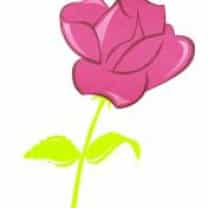
Number of seats: 43
The USFP is the successor of the “Union Nationale des Forces Populaires” (UNFP) which was created in January 1959 following internal division in the Istiqlal Party. In 1975 the name changed to USFP. The USFP, which had led the 1997 government, lost seats every election that followed. After the 2021 parliamentary elections the party holds 43 seats in parliament.
After its creation, the USFP held its next congress in 1962. In the first legislative elections of the country, in 1963, the new party was a success and the leaders of the UNFP (among which Mehdi Ben Barka, who disappeared mysteriously in 1963 in Paris) were voted into parliament. Under the reign of King Hassan (1961-1999) the USFP was frequently harassed by the regime. In 1963 and 1981 party leaders were kidnapped and the party's press (newspapers "Al Moharrir” and "Libération") was forced to close down. In 1993 the democratic bloc “la Koutla Démocratique” was created by the USFP together with Istiqlal, PPS and OADP. In 1997 they formed the government together with their allies from the Koutla, which have been opposition in the past.
Highlights of the USFP program are to integrate young unemployed people into the labour force, to maintain and stimulate the development of the Moroccan arts and handicrafts and their cultural values, and the adoption of local projects in order to promote investment and employment.
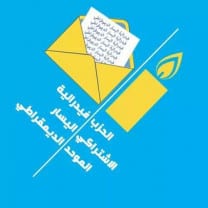
Number of seats: 2
The PSU was created in 2005 through the merger of the Parti de la Gauche Socialiste Unifiée (PGSU) and the “Fidélité à la Démocratie” association. The PGSU itself had been the result of an earlier merger four other left-wing parties.
The PSU is a socialist party which strives for “a dignified life and equitable distribution”. According to the PSU, their program is founded on the principles of modernity, rationalism, and citizenship. The party wishes to change the constitution so as to curb the powers of the king and turn Morocco into a constitutional monarchy. PSU furthermore wishes to increase the Moroccan’s sense of citizenship through education, training and cooperation with NGOs and grassroots movements. Important issues for the party are equal access to quality education and healthcare; the creation of employment; development of rural areas and environmental protection; the fight against corruption; the modernisation of the administration; and greater independence of the judiciary. PSU furthermore actively supports gender equality and equal opportunities for minorities and disabled. Within the party, a women network and a youth organisation are active.
In the parliamentary elections in 2016, the PSU participated with 2 other parties, the Socialist Democratic Vanguard Party (PADS) and the National Ittihadi Congress Party (CNI), as part of the Federation of the Democratic Left (FGD). The FGD won 2 seats in the parliament. The Socialist Democratic Vanguard party was founded in 1991. Leader of the party is Ali Boutouala. Their ideology is conveyed in socialism and syndicalism. In 2007 parliamentary elections, the party was part of the joint list of the National Congress Party, the Unified Socialist Party (PADS–CNI–PSU Union), that won 6 seats. The Ittihad National Congress (CNI) is a left-wing political party founded in 2001 from a split from the Socialist Union Popular Forces (USFP). The founder of the party was Abdelmayid Bazubaa and the current leader is Abdessalam Laâziz.
In the elections in 2021 the PSU participated separately from the FGD. Both the FGD and the PSU won one seat in the parliamentary elections.
Other Parties
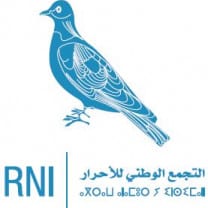
Number of seats: 102
Since the National Rally of Independents was created in 1978 by the ‘SAP’ (Sans Appartenance Politique) deputies of the 1977 elections, the RNI strives for the realisation of its goals: the promotion of social democracy within the constitutional monarchy, the preservation of the Arab-African Moroccan identity and the defence of the territorial integrity of the Kingdom. In the context of this program, the RNI calls for the realisation of a social project, aimed at the creation of a solid and competitive economy, which guarantees labour places, the development of the country, and reform of the legal system as well as the tax system - which in turn must encourage private investment. The RNI was the winner of the 2021 elections, going from 37 to 102 seats. Its leader, Aziz Akhannouch is currently serving as Prime Minister. The RNI is governing in a coalition with Istiqlal and PAM.

Number of seats: 87
The Authenticity and Modernity Party was founded in 2008 with the initial aim to strengthen the power of the king in Morocco. It is a centre-right party, composed now of the Environment and Development Party, PND-Al Ahd Union, the Alliance of Liberties and the Citizenship and Development Initiative that merged with the PAM in 2010. The new union won 47 seats in the 2011 parliamentary elections. In the elections in 2021 the party managed to win 87 seats, again, which meant it remains the second largest party in Morocco. The party is currently in a government coalition with RNI and Istiqlal.

Number of seats: 81
The Istiqlal/Independence Party was founded in 1944, as an umbrella group of Moroccans fighting for independence from France. In 1993, the party became one of the parties of the democratic bloc “Koutla” and was part of the new government of 1997. Ever since, Istiqlal is part of the government. Today, Istiqlal is the nationalist party of Morocco and the party in power, functioning in line with the Moroccan monarchy. Key points of the Istiqlal Party are the connection with Islam and the constitutional monarchy and the throne, the safeguarding of Morocco’s cultural identity, the realisation of economical and social equality, the development of the economy and the reduction of economic and social differences between the regions. Istiqlal also wants to offer more attention to the position of Moroccans living abroad.
In the 2007 parliamentary elections, the Istiqlal-party became the biggest party in parliament with a total of 52 seats. In 2011 elections the party lost to the PJD, but won nine seats more (61 seats in total), thus becoming the second largest party in the parliament. In 2021 the party on 81 seats in the parliamentary elections. It is currenly in a government coalition with the RNI and PAM.
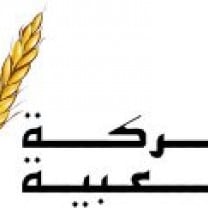
Number of seats: 28
The group movement is also known as the Harakat parti and represents the Berber community in Maroc. The party has 28 seats in parliament.
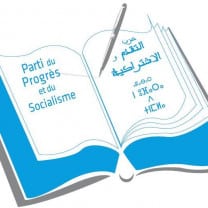
Number of seats: 22
The Party of Progress and Socialism was founded in 1974 as the sucessor of the Moroccan Communist Party and the Party of Liberation and Socialism. It distanced itself from communism after the disintegration of the Soviet-Union. The PPS was part of the coalition governments of Abbas El Fassi (Istiqlal) and Adelillah Benkirane (PJD). It won 22 seats during the 2021 parliamentary elections.

Number of seats: 18
The Group of Constitutional Union was created in 1983 and has been part of governments in the past several times. The party is considered to be close to the palace or at least to the administration. The party won 18 seats in the elections of 2021.
The UC is a member of the Liberal International since 2003.
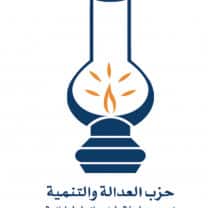
Number of seats: 13
The Party of Justice and Development was created as the 'Constitutional and Democratic Popular Movement' (MPDC) from splinters of the Popular Movement (MP) in January 1967 (the Party changed its name to PJD in October 1998). The party is moderate Islamist and a growing force in the country. The PJD carefully paves the way for a more religious orientated Morocco by creating the image of being the true defender of the Muslim state. The PJD presents itself as the only party which can bring problems such as corruption, poverty and the loosening of traditional values by the parties in power to an end.
Before 2003 the electoral program of the PJD had five key points: authenticity, sovereignty, democracy, equality and development – everything in accordance with Islam. After the 2003 Casablanca-bombings, the party changed its political profile by becoming more pragmatic and less critical about the Western influences in Morocco. This pragmatic profile seemed to pay-off in the run-off to the parliamentary elections of 2007. The opinion-polls showed a great victory for the PJD, with the possibility of winning up to 80 seats. However, the outcomes of the elections were a big disappointment for the PJD. The party won only 46 seats in 2007, but it rehabilitated itself by winning the majority of the seats in the 2011 elections (106) and in the 2016 elections (125). In the parliamentary elections in 2021 the PJD suffered a major loss, going from 125 to 13 seats in parliament. The party is currently in the opposition.
Number of seats: 5
The Democratic and Social Movement is a centre-right party created on 15 June 1996 from splinters from the National Popular Movement (MNP). It entered the parliament in 1997 with 32 seats. In the parliamentary elections of 2021 the party won 5 seats.

Number of seats: 3
The Front of Democratic Forces Party was founded in 1997, when it split from the Party of Progress and Socialism. In the parliamentary elections of 2021 the party won 3 seats.
4 Biographies
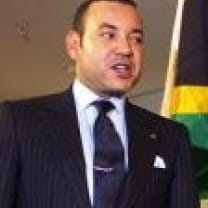
Mohammad al-Hasssan was born on 21 August 1963, son of at that time King Hassan II and Lalla Latifa Hammou. Mohammed VI is Morocco’s third king since the country gained independence from France in 1956.
Mohammed VI went to law school in Rabat and earned a master’s degree in Political Science in 1987 and a doctorate in law from the University of Nice Sophia Antipolis in France. In 2002 he was awarded a honorary doctorate from the George Washington University. He ascended to the throne on 23 July 1999 upon the death of his father. Shortly after he became king, he announced some reforms and promised to take on poverty and corruption. However, Morocco remained an authoritarian monarchy and in February 2011 protests against the power of Mohammed VI broke out. The King of Morocco holds vast executive powers, including dissolving parliament at will. In a speech on 17 June 2011, King Mohammed VI proposed constitutional changes, but about 10,000 protesters rallied in Casablanca against his proposals, which they said did not go far enough. In July 2011 the changes to the electoral legislation and to the rendering of some of the king’s power to the prime minister were introduced.
King Mohammed is married with Salma Bennani. They have a son, Crown Prince Moulay Hassan, born in 2003, and a daughter, Princess Lalla Khadija, born in 2007.
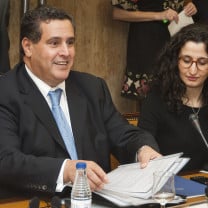
Aziz Akhannouch was born in 1960. His father was a wealthy gas and oil investor. He became part of his father’s business empire in 1986 after he graduated from Université de Sherbrooke in Canada. Through his business ties he became involved with the National Rally of Independents (RNI) party. In 2007 he was appointed Minister for Agriculture, an office he subsequently hold under different Prime Ministers until the current day. In 2017 he became the leader of the National Rally of Independents. He is considered to be one of the richest man in Morocco. After the RNI won the parliamentary elections in 2021, the king appointed Akhannouch as Prime Minister.
Aziz Akhannouch was born in 1960. His father was a wealthy gas and oil investor. He became part of his father’s business empire in 1986 after he graduated from Université de Sherbrooke in Canada. Through his business ties he became involved with the National Rally of Independents (RNI) party. In 2007 he was appointed Minister for Agriculture, an office he subsequently hold under different Prime Ministers until the current day. In 2017 he became the leader of the National Rally of Independents. He is considered to be one of the richest man in Morocco. After the RNI won the parliamentary elections in 2021, the king appointed Akhannouch as Prime Minister.
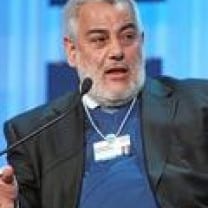
Abdelillah Benkirane has been a leader of the parliamentary election winner Justice and Development Party (PJD) since July 2008. He was appointed as Prime Minister on 29 November 2011, after early parliamentary elections. In early December 2011 a poll was published in which more than 82 percent of Moroccans expressed confidence in the ability of the newly appointed Islamist Prime Minister Abdelilah Benkirane to run government. 43 percent of those polled said they were “fully confident” and a further 39 percent said they were “reasonably confident”. The opinion poll was carried out from 2 to 5 December on a sample of 1,000 people. After Benkirane failed to form a coalition government following the elections of 2016, King Mohammed VI dismissed him in March 2017.
Following the parliamentary elections in 2021 where the PJD lost 112 seats, Benkirane was elected as the secretary general again after Othmani resigned.
Benkirane's politics are democratic and Islamist. He is married to a party activist and has six children.

Driss Lachgar, born 1954 in Rabat, is the party leader of the USFP. Between 2010 and 2012 he held the position of Minister of Relations within the parliament. Before Lachgar entered parliament he was a lawyer.
Lachgar was elected by an overwhelming majority and received 198 votes more than his opponent. After he was elected he reached out to all the party members, including his rivals, urging them to join efforts to breathe new life into the USFP. “The USFP needs all its components and all its skills,” he told the media, assuring that the party will not be run by one single person but that the management will be collegial.
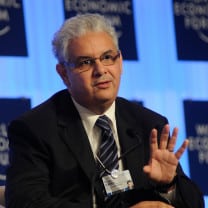
Nizar Baraka was born in 1964. He first pursued an academic career, getting a PhD in economics of the University of Aix-Marseille. After teaching economics at Rabat university, Baraka joined the Ministry of Finance in 1996. He held different positions over years, even being appointed Minister of Finance in 2012. In 2017 he became the leader of Istiqlal Party.
Abdeallatif Ouahbi was born in Agadir in an influential family. As a lawyer by profession, he has been working for the Moroccan Institute for Human Rights and is a founding member of the Moroccan branch of Amnesty International. He owns a multidisciplinary lawyer firm that handles both businesses and personal cases, nationally as well as internationally. Amongst others, he has also worked for the Arab Organization of Young lawyers.
He was elected member of parliament in 2011 and has serving as President of the Committee on Justice, Legislation and Human Rights in the Moroccan House of Representatives. In 2017 he submitted his resignation from the political bureau of the Authenticity and Modernity party following the return of Ilyas El Omari as secretary general who previously announced his resignation as party leader due to the accountability in the failure of development projects in the Rif region. As a leader of the PAM Abdeallatif Ouahbi called for realising the imprisoned protestors form the Hirak Rif.
Subscribe to our newsletter
